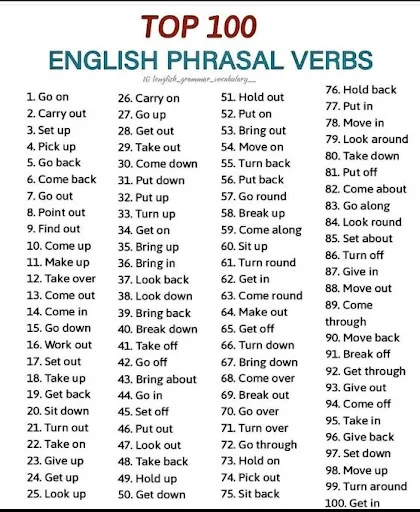*One-Word Substitution: A Powerful Tool for Effective Communication*
In the realm of language, precision and clarity are paramount. One-word substitution, also known as lexical replacement, emerges as a powerful tool for achieving these linguistic goals. By replacing commonplace words with more precise or evocative alternatives, we can elevate our writing and enhance our communication.
*Enriching Vocabulary and Expression*
One-word substitution serves as a catalyst for vocabulary expansion. By delving into the depths of the linguistic landscape, we unearth a treasure trove of words that can transform our writing. Replacing generic terms with more nuanced expressions not only enhances the precision of our language but also injects a sense of vibrancy and sophistication.
Consider the following examples:
* *Instead of "big," consider using "enormous," "massive," or "colossal."*
* *Replace "good" with "excellent," "outstanding," or "superb."*
* *Substitute "small" with "tiny," "petite," or "miniature."*
*Elevating Writing Style*
The art of one-word substitution extends beyond mere vocabulary expansion; it elevates our writing style, imbuing it with elegance and sophistication. By judiciously employing precise and evocative terms, we craft sentences that resonate with readers, leaving a lasting impression.
Imagine replacing "said" with "proclaimed," "whispered," or "bellowed." The subtle shift in word choice transforms a mundane statement into a vivid portrayal of intent and emotion.
*Enhancing Clarity and Conciseness*
One-word substitution also plays a crucial role in fostering clarity and conciseness. By replacing lengthy phrases with single, well-chosen words, we streamline our writing, making it more accessible and impactful.
For instance, consider replacing "in a state of confusion" with "bewildered," or "characterized by uncertainty" with "ambiguous." These substitutions not only condense our language but also convey the intended meaning with greater precision.
*Harnessing the Power of Precision*
Effective communication hinges on the ability to convey our thoughts and ideas with clarity and precision. One-word substitution empowers us to achieve this linguistic finesse. By carefully selecting words that capture the essence of our message, we establish a deeper connection with our audience.
Consider the impact of replacing "love" with "adoration," "passion," or "devotion." Each substitution imbues the concept with a distinct nuance, conveying a deeper and more meaningful expression of affection.
*Conclusion*
One-word substitution, far from being a mere grammatical exercise, stands as a powerful tool for effective communication. By embracing this linguistic technique, we enrich our vocabulary, elevate our writing style, and enhance the clarity of our message. As we embark on our journey of linguistic exploration, let us wield the power of one-word substitution to transform our communication and forge deeper connections with our audience.
One word substitution is the use of one word in place of a wordy phrase in order to make the sentence structure clearer. The meaning, with the replacement of the phrase remains identical while the sentence becomes shorter. One Word Substitution Example: My friend drives me in a car around town.
e. list of One Word Substitution, which is a crucial component of competitive exams. It plays a crucial role in enhancing one's vocab. It is used in the place of a long-phrase and makes the sentence clear and short without changing its meaning of it
One easy method of doing one word substitution is by using the root method. Roots are nothing but the words from which the main word has been derived. In our other series of vocabulary, we have consolidated the lists of root words that will ease your preparation.
Some tips to master one word substitution concept is essay writing and paragraph writing, reading newspaper, magazines, Play English word games like cross-word puzzles, etc.
Some Examples
(1) A person who is above hundred years:-Centenarian
Usage : Fauja Singh is one of the fittest person who is above hundred years.
Ans: Fuauja Singh is one of the fittest centenarian.
(2) A person who knows everything: Omniscient
(3) One who speaks less :Reticent
(4)One who believes in God :Theist
(5)One who loves mankind: Philanthropists
(6)A speech dilivered without any previous Preparation: Extempore
(7)One who believes in fate:Fatalist
(8) A list of Books: Catalogue
(9) A thing that is fit to be eaten: Edible
(10) A thing no longer in Use :Obsolete
(11) A sound that cannot be heard: Inaudible
(12) One who cannot be corrected : Incorrigible
* *Master the Art of One-Word Substitution: Examples and Usage*
* *One-Word Substitution: A Comprehensive Guide with Examples*
* *Elevate Your Writing with One-Word Substitutions: Enhance Clarity and Conciseness*
* *Unlock the Power of One-Word Substitution: Essential Tips and Tricks*
* *Transform Your Writing with One-Word Substitutions: Achieve Precision and Elegance*
* *One-Word Substitution: A Practical Guide to Enhance Your Vocabulary*
* *Expand Your Vocabulary with One-Word Substitutions: Examples and Applications*
* *The Ultimate Guide to One-Word Substitution: Enhance Your Writing Skills*
* *One-Word Substitution: A Powerful Tool for Effective Communication*
* *Mastering One-Word Substitution: Elevate Your Writing to New Heights*
*communication tool
*vocabulary enhancer
*linguistic precision
*lexical substitution
*verbal efficiency
*rare word replacements
*unique language usage
*uncommon expressions
*overlooked synonyms
*distinctive terminology
*language evolution
*communication trends
*word choice dynamics
*linguistic innovations
*contemporary vocabulary
*synonym alternatives
*language substitution
*word variety benefits
*lexical diversity
*communication efficiency
(7)One who believes in fate:Fatalist
(8) A list of Books: Catalogue
(9) A thing that is fit to be eaten: Edible
(10) A thing no longer in Use :Obsolete
(11) A sound that cannot be heard: Inaudible
(12) One who cannot be corrected : Incorrigible
(Please click above link and test yourself)
KEEP VISITING THE BLOG FOR UPDATE ON FOLLOWING
* *Master the Art of One-Word Substitution: Examples and Usage*
* *One-Word Substitution: A Comprehensive Guide with Examples*
* *Elevate Your Writing with One-Word Substitutions: Enhance Clarity and Conciseness*
* *Unlock the Power of One-Word Substitution: Essential Tips and Tricks*
* *Transform Your Writing with One-Word Substitutions: Achieve Precision and Elegance*
* *One-Word Substitution: A Practical Guide to Enhance Your Vocabulary*
* *Expand Your Vocabulary with One-Word Substitutions: Examples and Applications*
* *The Ultimate Guide to One-Word Substitution: Enhance Your Writing Skills*
* *One-Word Substitution: A Powerful Tool for Effective Communication*
* *Mastering One-Word Substitution: Elevate Your Writing to New Heights*
*vocabulary enhancer
*linguistic precision
*lexical substitution
*verbal efficiency
*rare word replacements
*unique language usage
*uncommon expressions
*overlooked synonyms
*distinctive terminology
*language evolution
*communication trends
*word choice dynamics
*linguistic innovations
*contemporary vocabulary
*synonym alternatives
*language substitution
*word variety benefits
*lexical diversity
*communication efficiency
FREQUENTLY ASKED QUESTIONS AND ANSWERS
Q1: What is a one-word substitution in the context of communication?
A1: A one-word substitution is a linguistic tool where a single word is used to replace a group of words or a longer phrase, conveying the same meaning in a more concise manner. It enhances communication by offering brevity and precision.
Q2: How can one-word substitutions contribute to effective communication?
A2: One-word substitutions enhance communication by simplifying complex ideas, reducing verbosity, and improving overall clarity. They serve as powerful tools to convey messages more efficiently, making language more impactful and memorable.
Q3: Are one-word substitutions limited to specific types of communication?
A3: No, one-word substitutions can be applied across various forms of communication, including written and spoken language. They are versatile tools that can be utilized in everyday conversations, formal writing, public speaking, and more.
Q4: Can you provide examples of one-word substitutions and their applications?
A4: Certainly! Examples include using "Ephemeral" instead of "Short-lived," or "Ubiquitous" instead of "Present everywhere." These substitutions add sophistication and precision to language, making communication more effective.
Q5: How can individuals improve their one-word substitution skills?
A5: Improving one-word substitution skills involves expanding your vocabulary, understanding context, and practicing regularly. Engaging in reading diverse materials, solving word puzzles, and consciously incorporating substitutions into your language can enhance these skills.
Q6: Is there a risk of miscommunication when using one-word substitutions?
A6: While one-word substitutions can enhance communication, it's essential to consider context. In certain situations, a longer explanation may be necessary to avoid misunderstandings. It's crucial to balance brevity with clarity to ensure effective communication.
Q7: Are there any online resources to practice and learn more about one-word substitutions?
A7: Yes, there are several online platforms and dictionaries that provide lists of one-word substitutions along with explanations and examples. Engaging in these resources can be a helpful way to enhance your skills in this linguistic tool.




















